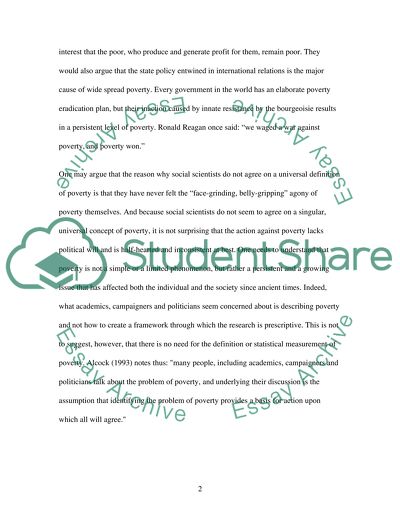Cite this document
(“Social Science Explanation of Poverty Essay Example | Topics and Well Written Essays - 2000 words”, n.d.)
Social Science Explanation of Poverty Essay Example | Topics and Well Written Essays - 2000 words. Retrieved from https://studentshare.org/sociology/1527668-social-science-explanation-of-poverty
Social Science Explanation of Poverty Essay Example | Topics and Well Written Essays - 2000 words. Retrieved from https://studentshare.org/sociology/1527668-social-science-explanation-of-poverty
(Social Science Explanation of Poverty Essay Example | Topics and Well Written Essays - 2000 Words)
Social Science Explanation of Poverty Essay Example | Topics and Well Written Essays - 2000 Words. https://studentshare.org/sociology/1527668-social-science-explanation-of-poverty.
Social Science Explanation of Poverty Essay Example | Topics and Well Written Essays - 2000 Words. https://studentshare.org/sociology/1527668-social-science-explanation-of-poverty.
“Social Science Explanation of Poverty Essay Example | Topics and Well Written Essays - 2000 Words”, n.d. https://studentshare.org/sociology/1527668-social-science-explanation-of-poverty.


